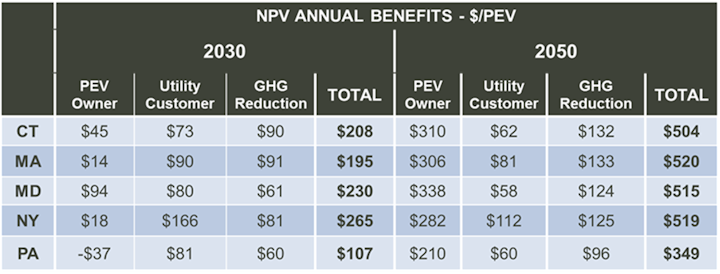Electric Vehicles May Actually Drive Down Electricity Prices
Owners of electric vehicles already know the many benefits they receive from going all-electric. They save money on fuel, maintenance, and reduce carbon emissions into our atmosphere. But, what they might not realize is they could be saving us all money on our electric bills.
“These vehicles plug into our electricity system, and a number of cost-benefit studies are showing that this can be really beneficial to all ratepayers, not just the drivers of the vehicles,” said Matt Stanberry of the trade group Advanced Energy Economy (AEE). “As you increase electricity sales for charging the vehicles, it has the effect of driving down rates for all ratepayers because it spreads the fixed cost of the system out across a larger volume of sales.”
McMahon cites a 2017 study by M.J. Bradley & Associates, which analyzed the impact of EVs in five US states, and found that the benefits flow not only to EV owners but also to electric ratepayers in the form of reduced fixed costs. In fact, the study found that in some cases utility ratepayers benefited more than the EV owners themselves.
For example, in Massachusetts, the study found $195 in annual benefits from a plug-in vehicle: $14 for the owner, $90 for the utility customer, and $91 for society in reduced emissions. In New York, it was $18 for the owner, $166 for the utility customer, and $81 for society.

The benefits to utility customers should only increase as more drivers go electric. However, for the maximum positive impact on the grid, EV drivers need to charge their vehicles at off-peak times, when there is spare capacity on the electric grid.
The problem is that many shoppers don’t consider or are not made aware of electric vehicles when buying a new car. 60% of recent car shoppers say they were unaware EV were even an option and 84% say they would have been interested in an EV once told the benefits.
This is more than a car manufacturer issue. If utilities want more electric vehicles on the road and using their charging stations than they too will have to educate the public.
